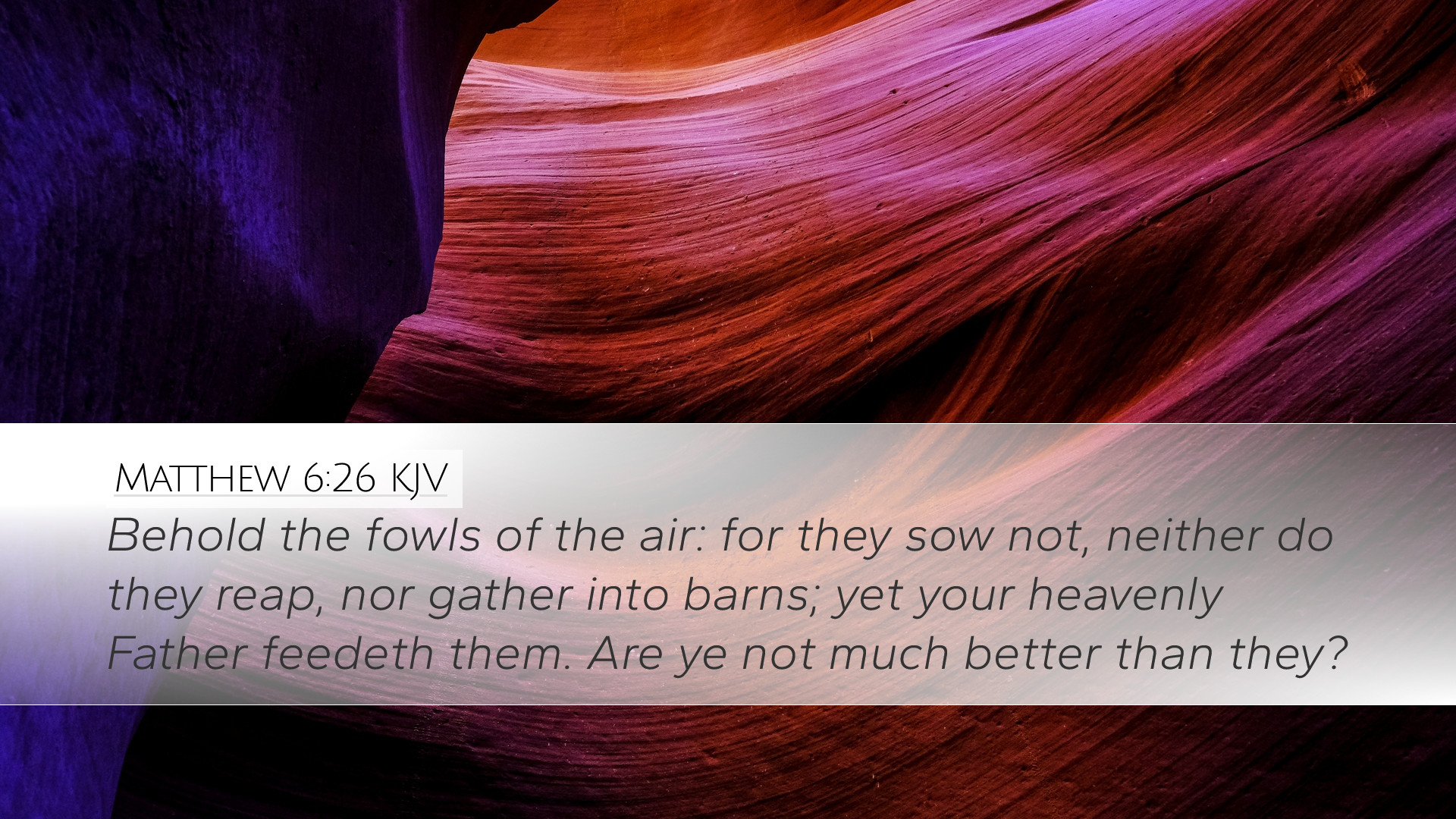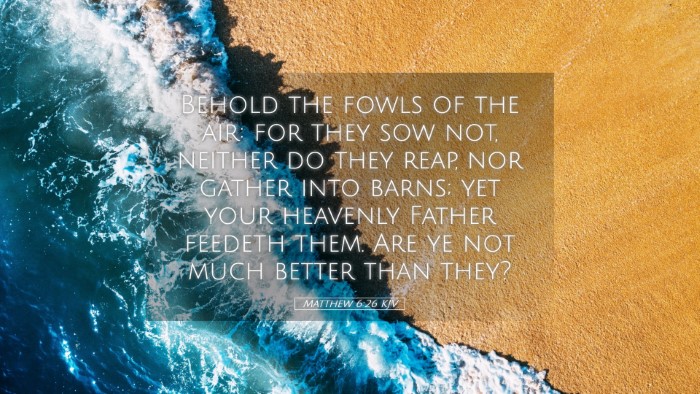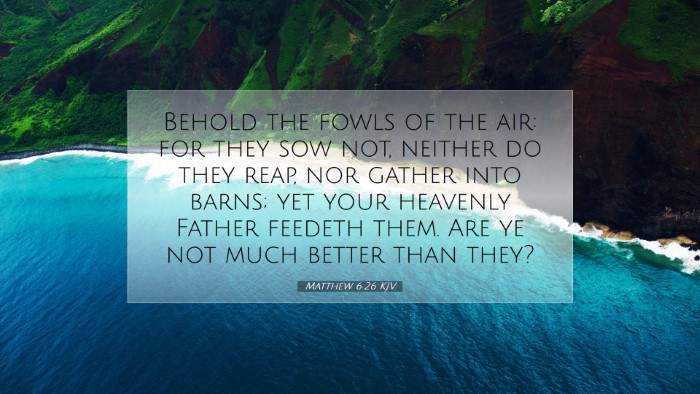Commentary on Matthew 6:26
Verse: "Look at the birds of the air; they neither sow nor reap nor gather into barns, and yet your heavenly Father feeds them. Are you not of more value than they?"
Introduction
This profound teaching of Jesus, found in Matthew 6:26, addresses the theme of divine providence and the assurance of God's care. In this passage, Jesus uses the birds of the air as a natural metaphor to impart spiritual truth. The verse encourages believers to reflect on God's provision and their own worth in His eyes. Drawing insights from public domain commentaries, we delve deeper into the meaning and implications of this verse.
The Significance of the Birds
Nature as a Teacher: Jesus invites his listeners to observe the birds, which live free from the burdens of anxious toil for daily sustenance. Matthew Henry emphasizes that they "neither sow nor reap" yet are provided for by God, illustrating a vital truth about dependence on divine grace.
Lessons from Creation: Albert Barnes suggests that by contemplating the birds, believers can gain insights into trusting God's provision. The birds’ freedom from worry serves as a lesson for human beings to have faith in God’s goodness and to recognize that His care extends to all His creation.
The Assurance of God's Provision
Heavenly Father’s Care: The phrase “your heavenly Father feeds them” highlights the personal relationship God has with humanity. Adam Clarke points out that the term "heavenly Father" indicates that God is aware of our needs and is actively involved in our lives.
Contrast with Human Worry: The rhetorical question, "Are you not of more value than they?" underscores the insignificance of human worry when compared to God's immense care for us. It serves to remind believers that they should trust in God's provision for their lives.
The Value of Humanity
The Dignity of Creation: In considering the value of humanity, Matthew Henry asserts that human beings, created in the image of God, hold a special place within creation. While the birds are essential, humans are of far greater worth in the eyes of the Creator.
Faith and Trust: Believers are called to recognize their inherent value, which invites them to place their faith and trust in God. Albert Barnes further elaborates that understanding one's value in God's sight should remove anxiety and replace it with assurance that God will provide.
Implications for Christian Life
Rejecting Anxiety: The central theme of this verse challenges believers to reject anxiety over material needs. Adam Clarke suggests that this passage should encourage Christians to have confidence in God's promises rather than succumbing to fear about their circumstances.
- Active Faith: This does not imply passivity; instead, believers should engage actively in their duties while relying on God for the outcomes.
- Living with Hope: The assurance of divine provision fosters a spirit of hope that can sustain believers through trials and tribulations.
- Community Support: Understanding God's providence encourages believers to support one another in faith, sharing the abundance that God provides.
Conclusion
Matthew 6:26 serves as a core text within the teachings of Jesus that illustrates God’s unwavering commitment to nourish and care for His creation. Through the simple yet profound example of birds, Jesus conveys deep theological truths about providence, human worth, and the call to trust. As pastors, students, theologians, and Bible scholars reflect on this verse, they are reminded of the importance of faith in God's provision and the divine value placed upon humanity, encouraging a life free from anxiety and full of trust in God’s loving care.


